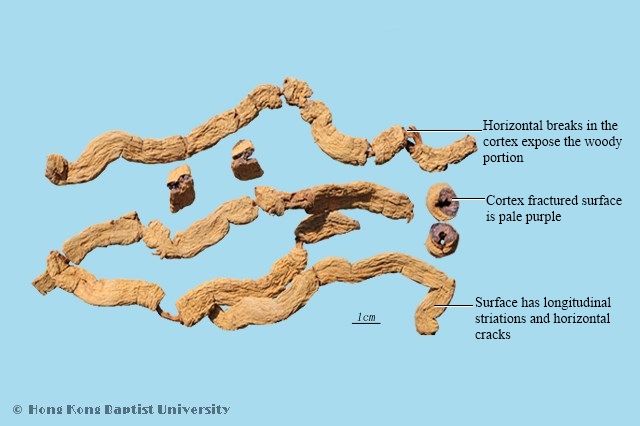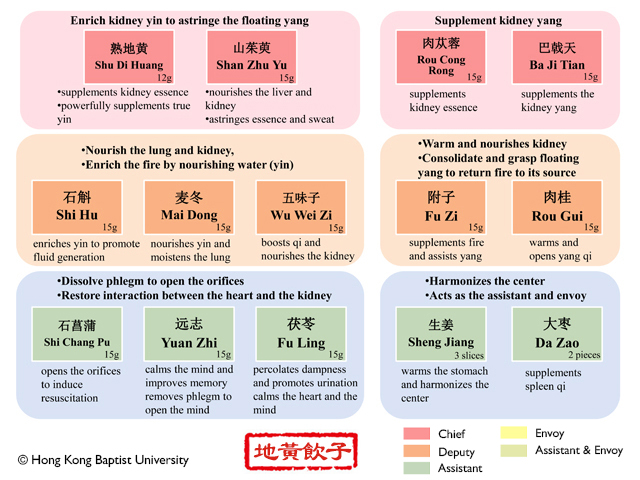Rehmannia Drink
Action:Nourishes kidney yin, supplements kidney yang, opens the orifices, and resolves phlegm.
Indication:Di Huang Yin Zi is indicated for yin fei syndrome (aphasia and apraxia) due to kidney qi deficiency and phlegm invading upward manifested as aphasia due to stiffness of the tongue, apraxia of the legs, thirst without a desire to drink, cold legs, and flushed face. The pulse is deep, thin, and weak.

